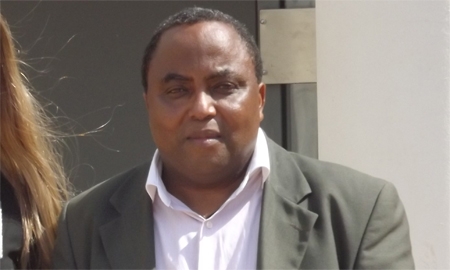
Could you tell us what have been the most important challenges you have faced in the telecommunications sector? We know that this sector has developed exponentially very recently: what have been the challenges faced?
The sector of telecommunications started to develop once the Government started to invest. The Government invested at one point a lot of money and with that the sector could develop accordingly. The most important thing for the sector was the structure and infrastructure for this market to evolve. Mechanisms were created which permitted the entrance to the telecommunications market to important and big operators.
Then, once the infrastructure was created and all the conditions were guaranteed, the operators entered the market and thus it was developed.
We would like to know the evolution of ITEL, how was it created and what were the big challenges that were faced in this time? How did it help to promote Angola as a brand?
The main objective of ITEL is to train people; we have courses for the medium level in terms of technicality and basic professional courses. We as well develop every program the Ministry of Telecommunications gives us.
ITEL was created in 1985 by a Decree both by the Ministry for Telecommunications and Transportations (now Telecommunications and Information Sciences) and the Ministry of Education. In 1990 ITEL started to run with courses and professional programs whilst the management was decided.
ITEL wants to create a trained workforce, and our philosophy is to create a small workforce but to create the best… We center our work in quality rather than quantity.
This workforce must respond to the needs of the markets, and so ITEL consults with the market from time to time, in order to always be up to date.
Mr Dos Santos, we represent the German community who want to invest in Angola. In Germany the scientific revolution took place and so they are the pioneers of science and telecommunications: we would like to know the lines of action that ITEL is implementing and what are the programs they are investing in.
ITEL is very big in professional capacitating, as well as training in basic and medium levels we train as well the superior level in order to get a degree in engineering.
The objective ITEL is going after is to train the future workers of the telecommunications sector in order to work with the market operators.
I believe that German investment will be crucial for Angola´s development and as well for the area of telecommunications where they have been top of the sector. We want to train pupils for the time when Germany arrives in Angola and needs these workers to help them get to know the market.
What projects is ITEL developing?
Project ISOTEC is the most important project being developed today. This project entails turning ITEL into a Superior Institute – ISOTEC stands for Instituto Superior de Tecnología de Informaçoes e Comunicaçao and will be ready in two years, and it will be launched in 2013.
ISOTEC has several phases, first the construction which is just ending, then the creation of classrooms while attracting the involvement of telecommunication companies, and lastly research of the market. We are already doing research and development in order to know what students will need in 2013 to operate in the market.
Germany is leader in knowhow, technology and professional capacitating and right now has a line of credit of 2 billion US Dollars to invest in Angola. What are the positive impacts that ITEL could draw from a synergy with Germany?
ITEL is working to develop the knowhow of its workforce, and there are many opportunities in the sector of telecommunications that have to be addressed. In order to know exactly where this investment could go to in relation to ITEL we should need to do a study and draw conclusions.
Nevertheless, the situation being that the line of credit is open for investors is a very good sign that the market is very good and there are many oppoprtunities.
We cannot forget that there is already a lot of German equipment in Angola, and so being trained by its nationals is only natural. I would say that professional capacitating would be very welcomed in Angola.
What message would you like to give our investment community in Germany?
German investors should come to ITEL because here they will find informed professionals who will be able to give the technical and professional guarantees that the investors need.
0 COMMENTS